Francesca Gillett and Helen BushbyBBC reporters

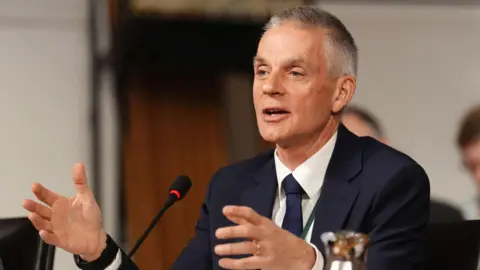 PA Media
PA Media
Tim Davie was appointed as BBC director general in 2020
BBC director general Tim Davie and head of news Deborah Turness have resigned, saying in emails to staff that mistakes had been made.
The corporation has been under fire after criticism that a Panorama documentary misled viewers when it edited a speech by Donald Trump, making it look like he was explicitly urging people to attack the US Capitol.
On Monday, BBC chair Samir Shah said: "The BBC would like to apologise for that error of judgement." However, Trump has sent a letter to the BBC threatening a $1bn legal action.
Concerns over the Trump documentary were highlighted in a leaked BBC memo, published by the Telegraph newspaper. The memo also criticised the BBC's reporting of trans issues, and BBC Arabic's coverage of the Israel-Gaza war.
Who are Tim Davie and Deborah Turness?

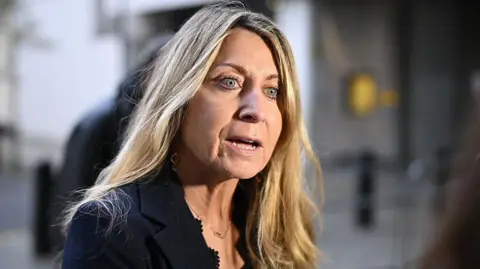 Getty Images
Getty Images
Deborah Turness has responsibility for about 6,000 people
Tim Davie was appointed director general of the BBC in September 2020.
Earning a salary between £540,000 and £544,999, he oversees the corporation's services and is responsible for its editorial, operational and creative leadership.
Deborah Turness, whose salary was between £430,000 and £434,999, had been the CEO of BBC News since 2022, overseeing news and current affairs programmes.
Her role has responsibility for a team of about 6,000 people, broadcasting to audiences of almost half a billion across the world, in more than 40 languages.
What were the claims over the Trump documentary?
The Panorama documentary, called "Trump: A Second Chance?", was broadcast on 28 October 2024, just days before the US presidential election.
Last week, the Telegraph published a report, saying it had seen a leaked BBC memo from Michael Prescott, a former independent external adviser to its editorial standards committee. He left the role in June, saying said he sent it in "despair at inaction by the BBC Executive".
The memo suggested that the one-hour Panorama programme had edited parts of Trump's speech together, so he appeared to explicitly encourage the Capitol Hill riot of January 2021.
In his speech in Washington DC on 6 January 2021, Trump said: "We're going to walk down to the Capitol, and we're going to cheer on our brave senators and congressmen and women."
However, in the Panorama edit he was shown saying: "We're going to walk down to the Capitol... and I'll be there with you. And we fight. We fight like hell."
The two sections of the speech that were edited together were more than 50 minutes apart.
The "fight like hell" comment was taken from a section where Trump discussed how "corrupt" US elections were. In total, he used the words "fight" or "fighting" 20 times in the speech.
According to the Telegraph, the document said Panorama's "distortion of the day's events" would leave viewers asking: "Why should the BBC be trusted, and where will this all end?"
When the issue was raised with managers, the memo continued, they "refused to accept there had been a breach of standards".
The BBC has received more than 500 complaints since the Telegraph's story was published, said Samir Shah in a letter to Dame Caroline Dineage, chair of the Culture, Media and Sports Committee, on 10 November.
"It has also prompted further reflection from the BBC," he said.
"The conclusion of that deliberation is that we accept that the way the speech was edited did give the impression of a direct call for violent action. The BBC would like to apologise for that error of judgement."
What has Trump said?
After the Davie and Turness resignations, President Trump said top people in the BBC were quitting or being fired "because they were caught 'doctoring' my very good (PERFECT!) speech of January 6th".
"These are very dishonest people who tried to step on the scales of a Presidential Election," he wrote. "What a terrible thing for Democracy!"
His lawyers have sent a letter to the BBC threatening legal action.
The letter sets out three demands:
Immediately issue a full and fair retraction of the documentary and any and all other false, defamatory, disparaging, misleading, and inflammatory statements about President Trump in as conspicuous a manner as they were originally publishedImmediately issue an apology for the false, defamatory, disparaging, misleading, and inflammatory statements about President TrumpAppropriately compensate President Trump for the harm causedThe BBC has been given a deadline to respond of 14 November 2025, at 22:00 GMT. The letter adds that if the BBC does not comply, the president will "enforce his legal and equitable rights... including by filing legal action for no less than $1bn in damages".
The BBC has said it will respond in due course.
What were the claims about BBC Arabic's reporting on the Israel-Gaza war?
The Telegraph also made claims about BBC reporting in other areas of news.
It said Mr Prescott raised concerns about a lack of action to address "systemic problems" of bias in BBC Arabic's coverage of the Israel-Gaza war.
In the letter to the Culture, Media and Sport Committee, Shah said that action had been taken to address "underlying problems", including:
The BBC Arabic Team has been restructuredA new Arabic speaking Head of Editorial Quality and Standards has been appointed in the World ServiceA new social media research unit has been set up to verify those who appear on the service.What were the claims about BBC coverage of trans issues?
Mr Prescott also raised concerns about the BBC's coverage of trans issues, saying it was effectively "censored" by its specialist LGBT reporters, who promoted a pro-trans agenda.
"I was told that time and time again the LGBTQ desk staffers would decline to cover any story raising difficult questions about the trans-debate," the memo said.
Separately, the BBC's coverage was again raised as an issue on Thursday, when the corporation upheld 20 impartiality complaints over the way presenter Martine Croxall earlier this year altered a BBC News Channel script, which referred to "pregnant people". The presenter changed her script to instead say "women".
The BBC's Executive Complaints Unit said it considered her facial expression as she said this gave the "strong impression of expressing a personal view on a controversial matter".
What did Davie and Turness say when they resigned?
Why have the BBC director general and news CEO resigned?
Davie did not mention the Panorama documentary in his statement, although he said: "While not being the only reason, the current debate around BBC News has understandably contributed to my decision.
"Overall the BBC is delivering well, but there have been some mistakes made, and as director general I have to take ultimate responsibility."
In her statement, Turness said: "The ongoing controversy around the Panorama on President Trump has reached a stage where it is causing damage to the BBC – an institution that I love.
"As the CEO of BBC News and Current Affairs, the buck stops with me - and I took the decision to offer my resignation to the director general last night."
She added: "While mistakes have been made, I want to be absolutely clear recent allegations that BBC News is institutionally biased are wrong."
What other controversies has Davie faced?
Tim Davie has weathered many scandals and crises during his five years leading the BBC.
These include:
The UK media regulator Ofcom ruling in October that the BBC committed a "serious breach" of broadcasting rules by failing to disclose that the narrator of a documentary about Gaza was the son of a Hamas official.The broadcast of Bob Vylan's set at Glastonbury, during which the duo led a chant of "death, death to the IDF [Israel Defence Forces]". The coverage broke editorial guidelines, the corporation's complaints unit ruled in September.Gregg Wallace being sacked in July as MasterChef presenter as a result of an inquiry into alleged misconduct. Fellow presenter John Torode was also sacked after an allegation that he had used "an extremely offensive racist term" was upheld.Match of the Day presenter Gary Lineker leaving the BBC in May after sharing a social media post about Zionism that included an illustration of a rat, historically used as an antisemitic insult.The BBC launching an investigation in August into alleged drug use by two Strictly Come Dancing stars.Professional dancers Giovanni Pernice and Graziano Di Prima leaving the show last year, following allegations about their behaviour towards their dance partners.Davie's resignation comes at a sensitive time for the BBC, with the government set to review the corporation's Royal Charter - which essentially gives it the right to exist - before the current term expires in 2027.
In his resignation statement, Davie said: "This timing allows a new DG to help shape the next Charter. I believe we are in a strong position to deliver growth."
What reaction has there been to the resignations?
Sir Keir Starmer's spokesman said the prime minister does not believe the BBC is "institutionally biased". Number 10 also denied the BBC was "corrupt" - a word Trump used to describe some of its journalists.
Dame Caroline Dinenage, the Conservative chair of the Culture, Media and Sport committee, said Davie had been "slow to react" to the issues raised in Michael Prescott's memo, following a series of editorial crises over the summer.
"The BBC just seem to have dropped the ball at every opportunity," she said. "And that's not a board-level problem, that's an institutional problem."
Dame Caroline rejected an argument made by ex-Sun editor David Yelland that there had been a "coup" by the BBC board. She said Davie did not stand down because the board asked him to, but because of an "editorial failure".
Mark Damazer, former controller of BBC Radio 4, said he welcomes debate about the BBC's impartiality, but that it is "absolutely wrong" to say that the corporation is "systemically biased".
He disagreed with ex-Telegraph editor Sir Charles Moore, who told BBC Radio 4's Today programme the BBC was "always [reporting] from a sort of metropolitan left position. Absolutely consistently, that's how the bias is".
How will the BBC choose Davie's replacement?
The director general is appointed by the BBC Board, which is responsible for ensuring it delivers the corporation's mission and public purposes.
The BBC Board is led by chair Samir Shah and he is one of 10 non-executive members, plus four executive members, including the director general.
Davie's successor will be the 18th director general in the BBC's 103-year history.
Names who have been rumoured as potential contenders include Charlotte Moore, the BBC's recently-departed chief content officer who was in charge of all programming except news.
Other names include Jay Hunt, one of the most experienced executives in British TV, and James Harding, the BBC's head of news from 2013 to 2018.

 Movie
Movie 1 day ago
38
1 day ago
38 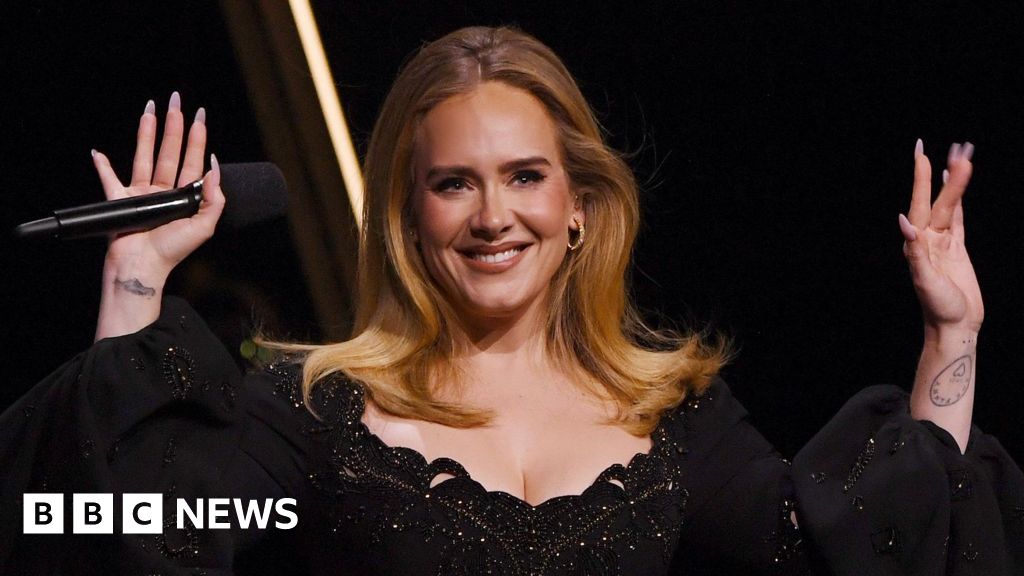
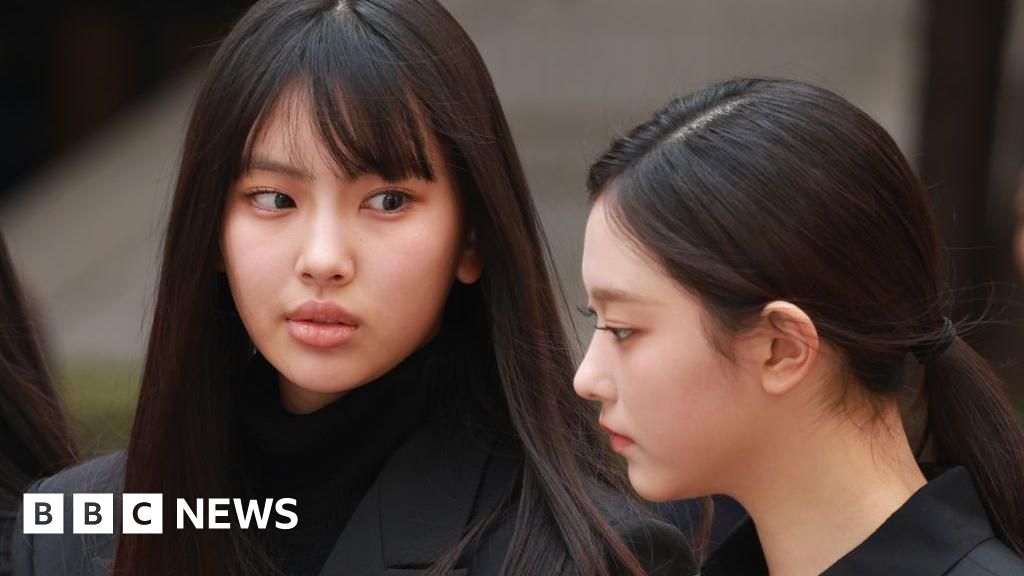
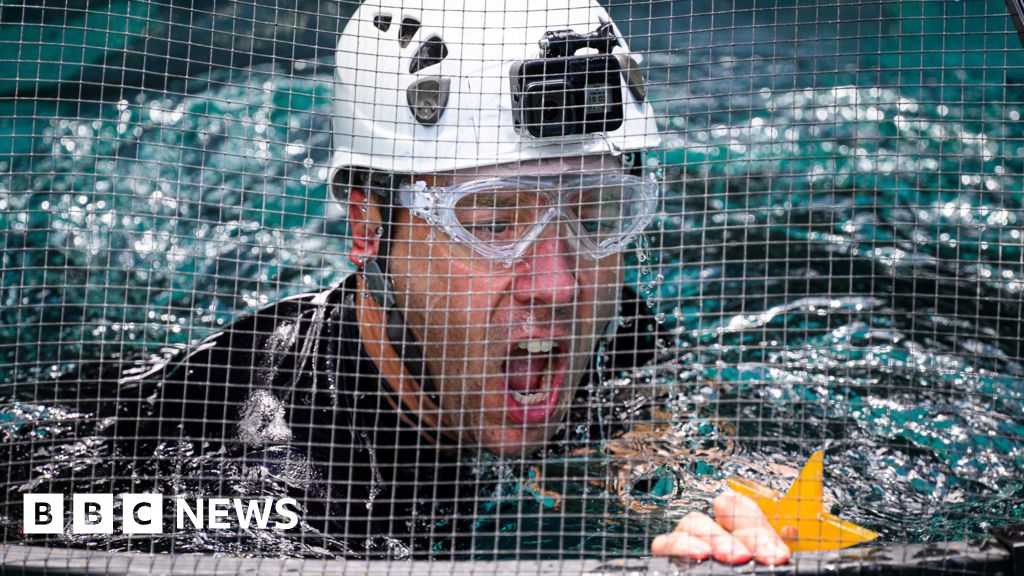
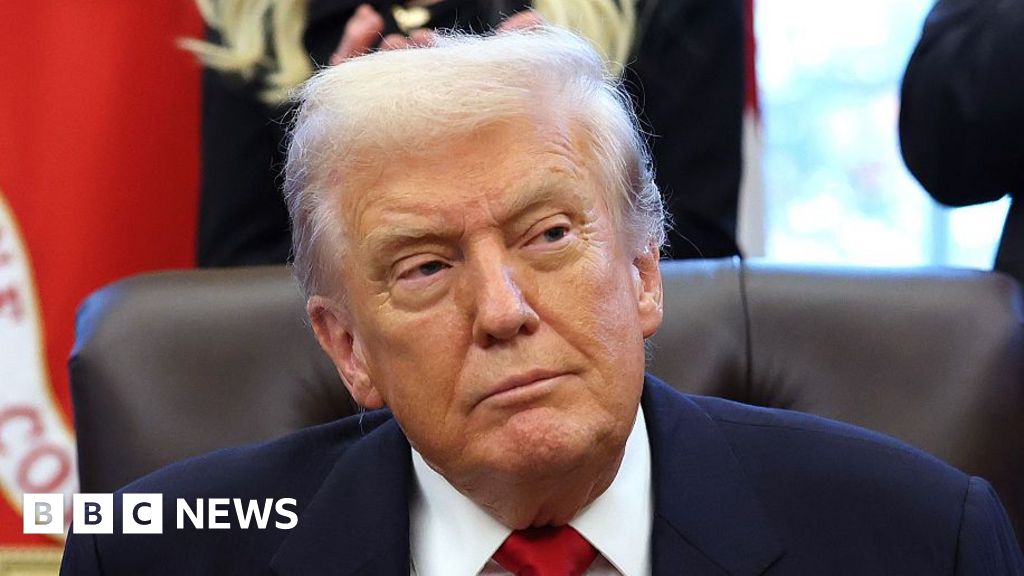
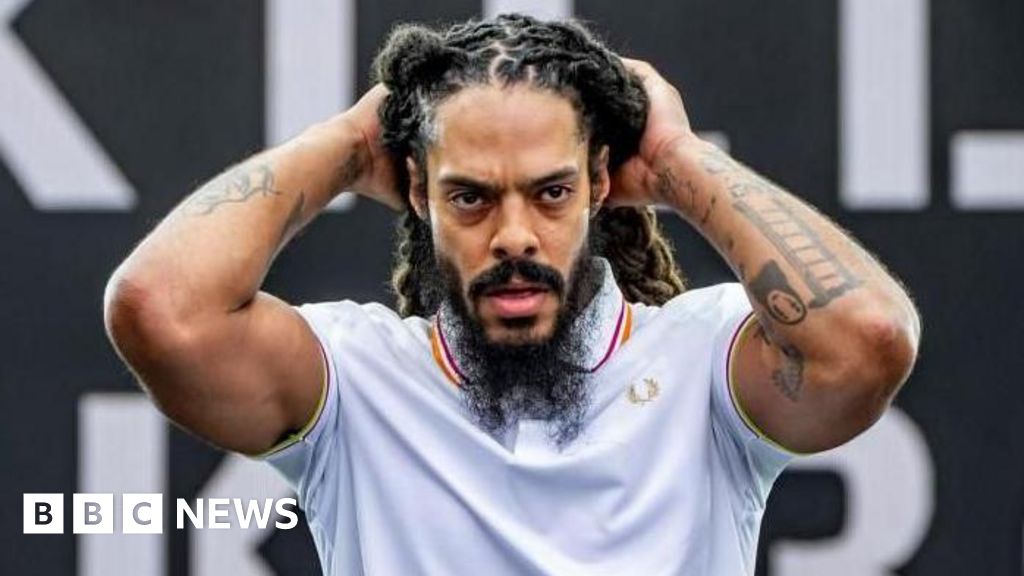
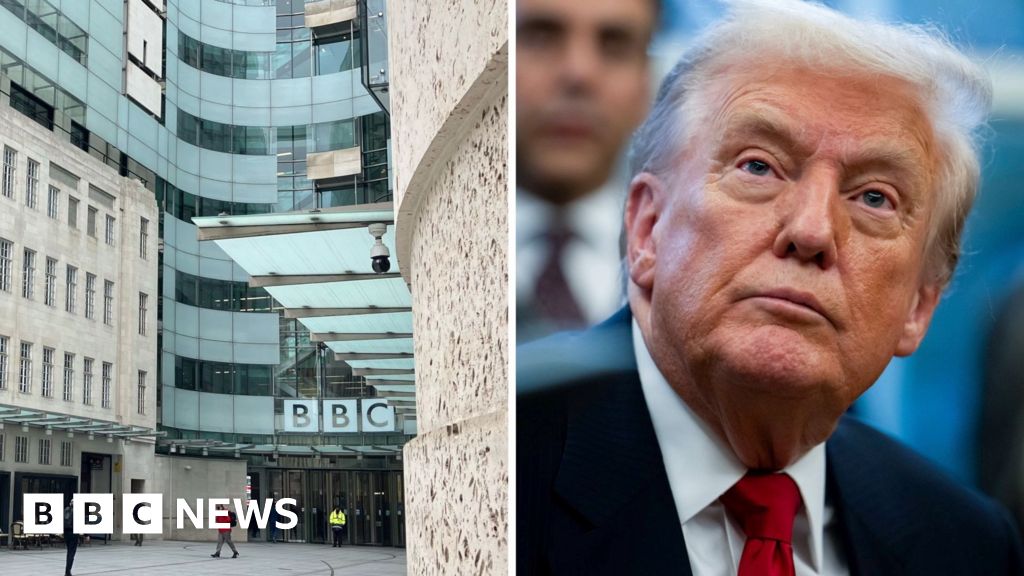
![Presidents Day Weekend Car Sales [2021 Edition] Presidents Day Weekend Car Sales [2021 Edition]](https://www.findthebestcarprice.com/wp-content/uploads/Presidents-Day-Weekend-car-sales.jpg)




 English (United States)
English (United States)